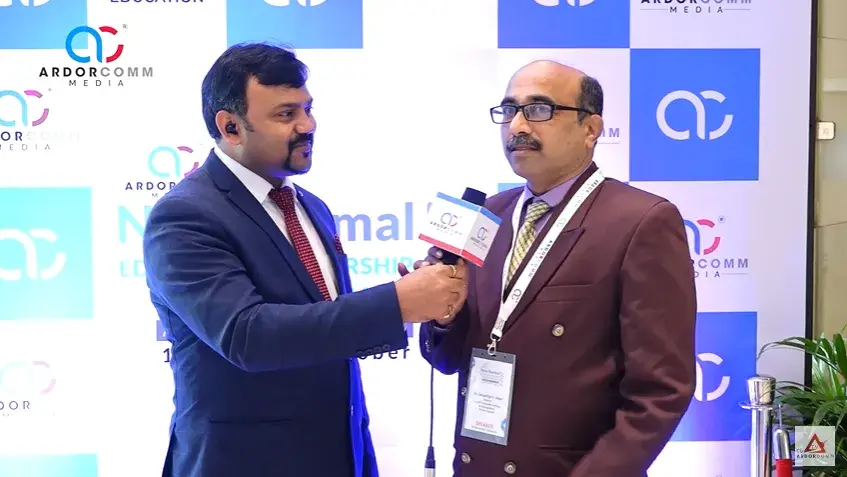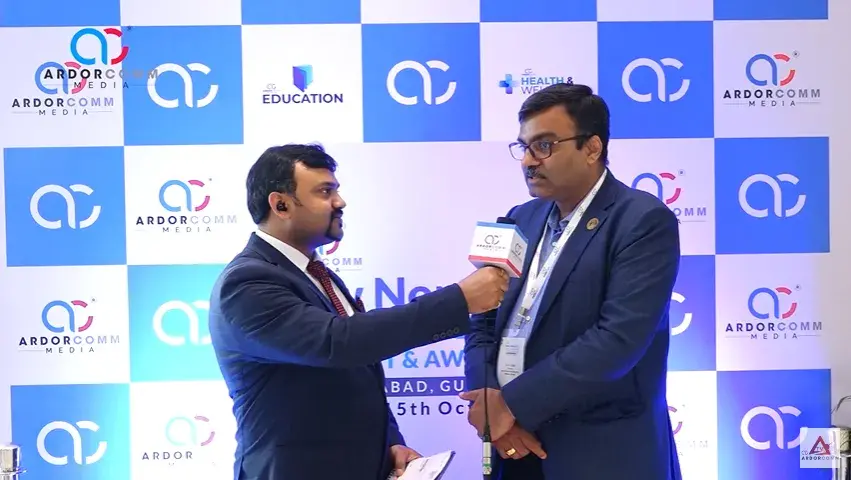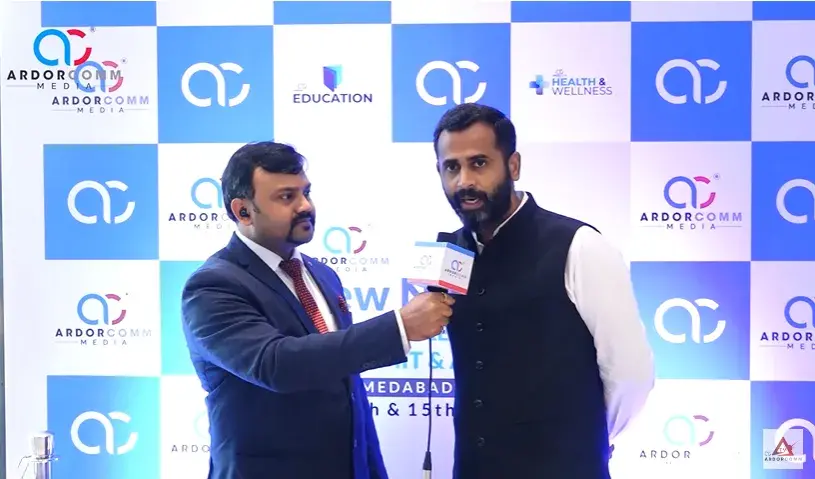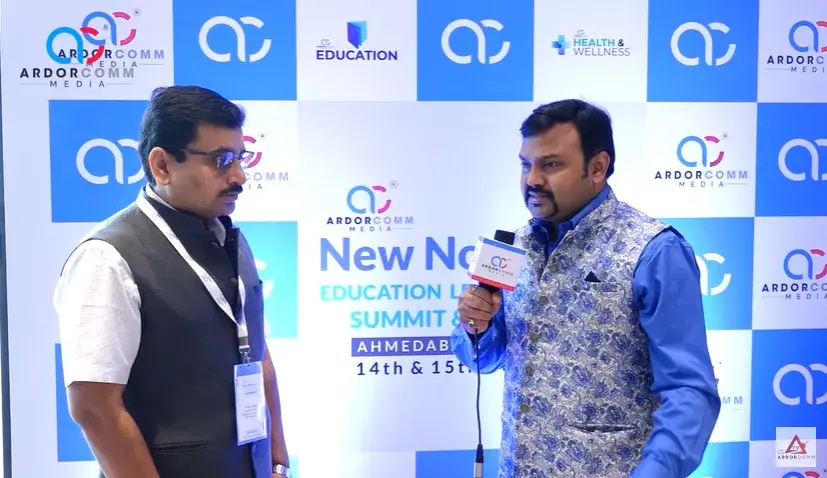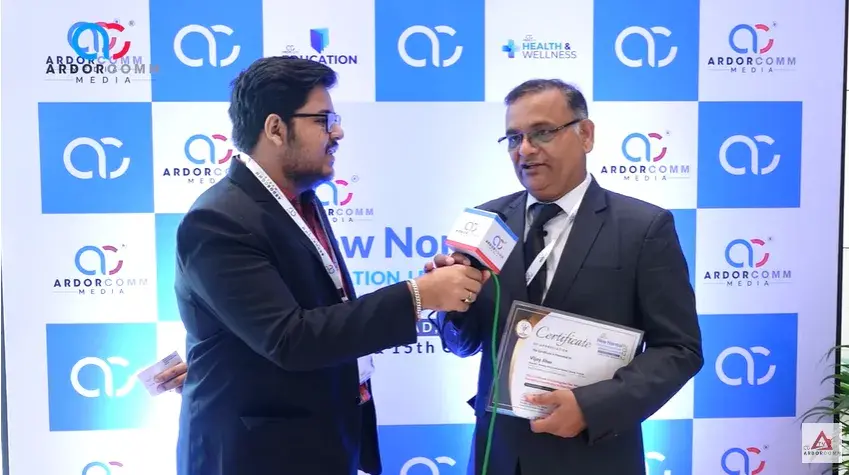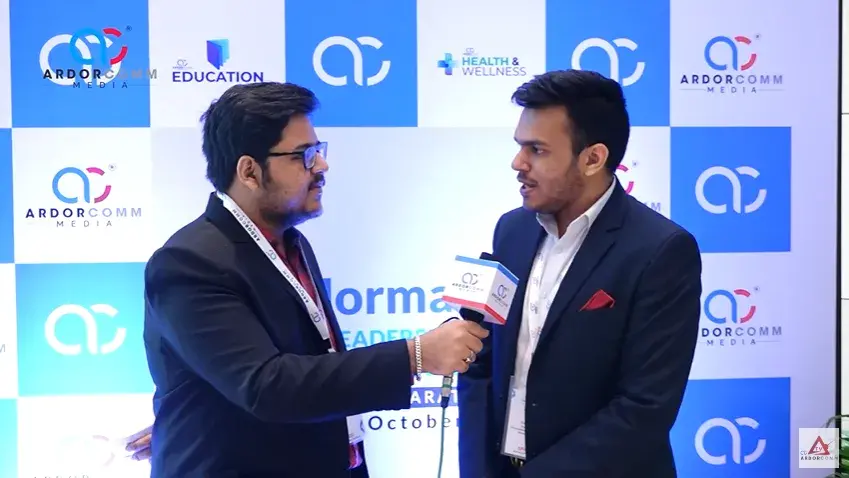Dr. Gangadhar G. Hugar, Director, Laxmi Vidyapeeth Institute of Management, Valsad emphasizes on importance of industry ready curriculum
“We have to work out and bring the changes in our curriculum system because what we are teaching, there is a huge mismatch between what industry is required,” says Dr. Gangadhar G. Hugar, Director, Laxmi Vidyapeeth Institute of Management, Valsad in an interview with Chandan Anand, Founding Editor, ArdorComm Media Group at the ‘ArdorComm New Normal – Education Leadership Summit & Awards 2022’ #ELSAGujarat #ELSAAhmedabad Would you like to highlight some initiatives about your institutions which you have done pre-pandemic and post-pandemic now? I have recently changed the institution, I have shifted to Laxmi Vidyapeeth Institute of Management Studies. I can focus much about pre-pandemic situation where we had used ICT tools for educating the students those who are from the remote areas, giving them and getting a more clarification about their courses, how best we can ensure and educate and transform their knowledge and upgrade their knowledge during the pandemic. With the help of the technology, with the help of the different platforms through which we used to conduct the classes online classes and that has worked out very well for us but the thing is you know the other way around the students at the receiving end are having or faced a lot of difficulties in terms of receiving the sessions. So, sometimes it was very indiscipline one, time management was a challenge for the students and technology was a challenge and network was a challenge. These are all the issues which were faced but you know gradually we worked and we worked together, students and the management and then it was resolved. Would you like to highlight how the industry ready curriculum should be there and what skill sets would be required so that the employability outcomes increase? It is like a very interesting subject for me and I’m the panel speaker for that, like when we talk about the industry related curriculum design my heartfelt feeling is industrialist has to come one step ahead and then associate with all the educational institutions irrespective of only focusing towards the tier one city or tier two cities. They should also, approach come down to the tier three cities and below level also because you know now the student’s fraternity which are having spread across the country in India they are facing a lack of employability skills and what do we teach in the institution and what do they learn and then when they are dumped into their job market they are unable to match their knowledge with the skills which are expected in the industry. So, henceforth what I request is some of the local small level or large level industrial associations has to have tie up and we also as an educationalist and the leaders in education segment we also would like to go ahead and then tie up with them so that in what level we can provide the employment opportunity for the students for which we have to work out and bring the changes in our curriculum system because what we are teaching is absolutely there is a huge mismatch between what industry is required. So, if for example if I take up an example of our present BO course introduced by GTU you know we have started giving the training to the students in each semester minimum one month they have to take a offline physical training. So, this is a beautiful thing what I have planned and you know like they will be observed by the end of the course itself and they are getting trained practically on the real platform it is not a dummy, it is not a duplication. They are given an opportunity to work on the real platform and really, we have worked out within a small span of time that is hardly three months it is really working out for me and I’m with which you know I have encouraged myself and my team of faculty members to do more so that because we are getting a positive response from the industry as well. So, see always when we talk about the industry it is not only the big players in the industries we should also focus on the small concerns small entrepreneurs you know individual, entrepreneurs, public company, private company whatever it is. We should have some kind of an association locally as well because our institutions when we talk about tier two cities or the tier three cities our students as well are requirement of a job opportunities so how to make employable to them at that level regionally tire two, tire three level so it helps a lot for us to have a local partners local associations so with whom we can make it possible and for that we have to design the curriculum which matches to ensure our student should start working from the day one itself. The name of the event is New Normal Education Leadership Summit and Awards, what is the word New Normal stands for you? New normal for me is you know doing something which is totally different and that different word has to have a catchy, meaning that for the present generation how we can enlighten, empower and transform the knowledge so that they could do something different things it is not one among the ten it has to be at the 11th one. By living one to ten he should or she should do the 11th one which is totally different, see doing the similar things anybody can do it any institution students can do it but every institution has to aspire the development of the students to come out with the kind of a creativity which is really acceptable in the industry segment. I’m happy to share that we recently celebrated our one year of existence and anniversary has been celebrated any message would you like to give for ArdorComm Media? It’s really a proud moment for me personally and professionally and I’m representing Lakshmi Vidyapeeth

